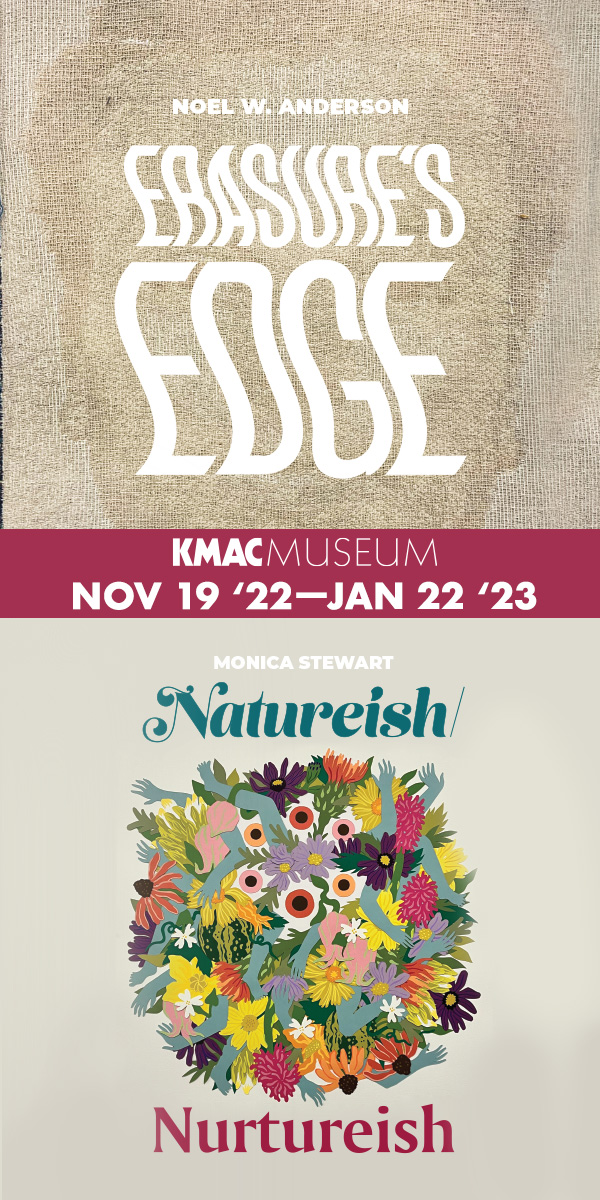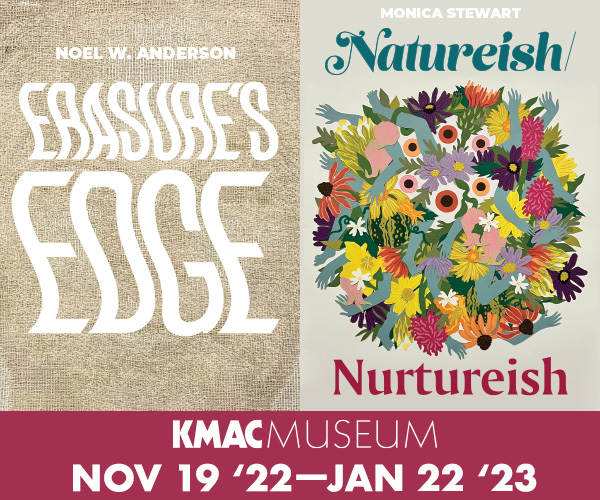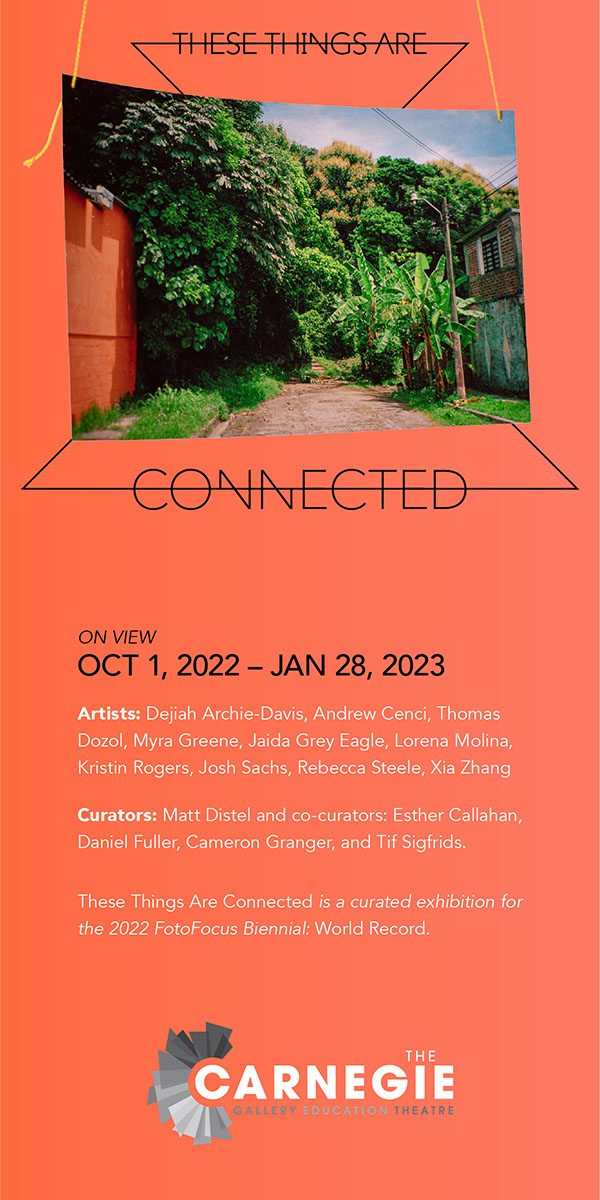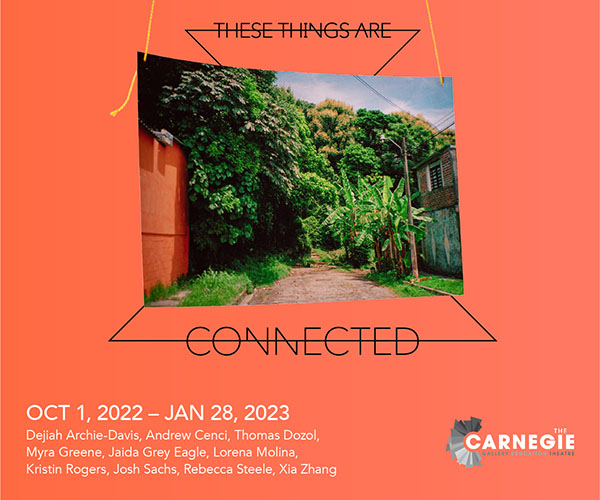Down Beat called him “One of the most studied (and copied) saxophonists on the planet.” Chris Potter, also an accomplished composer and formidable bandleader, will bring all of that to the stage of the Lyric Theater on the evening of April 22nd – the latest installment of the Origins Jazz Series.
Lexington architect, musician, and composer Clive Pohl caught up with Potter only hours after Potter’s return from a European tour. They had a wonderful, wide-ranging conversation and we’re sharing it in three parts so that by the time you take your seat on the 22nd, you’ll have a full appreciation of artist and music.
Part one:
Clive: I’m curious about your family and the musical environment you grew up in.
Chris: Well, no one in my family was a professional musician or even an amateur musician, but they were big fans of music. My father’s father, my grandfather on his side, was a big fan of classical music and listened to it all the time. So, my father had a familiarity with that and he had all kinds of records around the house along the lines of Beethoven and Brahms, and Igor Stravinsky, and Bartok and, you know, a wide range of that music with a bunch of other kinds of music. There was Joni Mitchell and Bob Dylan and there was blues music from Chicago. There was, you know, a few other things like, I remember a record of Gamelan music and music from Greece and also a few jazz records. So, that’s how I discovered the music, Miles Davis records, Dave Brubeck records, Charles Lloyd. I was a huge fan of the Beatles – I had their records as well. I discovered them when I was 6 or 7. When I was 9 or 10 is when I really discovered jazz and decided I wanted to see if I could play the saxophone. I carried on about it until my parents realized that I was serious. So, they got me one when I was 10 and I got really involved in it right away. And they were always very supportive, which I’m very thankful for.
Clive: And Paul Desmond was an early influence in that decision, is that true?
Chris: Uh-huh. Well, the sound of Paul Desmond’s alto, you know. That was a sound I had never heard before. A beautiful sound wafting in the air.
Clive: This is something I notice in your playing: the consistency of tone and clarity of each note, regardless of which notes you string together.
Chris: That may be the hallmark of someone that has a vision of what they want to do. I definitely hear that in his playing and it’s a much different quality than, say, John Coltrane’s but, in a way, they share this clarity of purpose.
Clive: Yes, you can hear an absolute commitment. And I’m not surprised to hear you mention such a broad array of influences because I hear some of that in your playing. Some popular references, but also the Bartok reference is very evident. Among all those classical musicians that you mentioned, do you rank him high among them as an influence?
Chris: Oh, sure. Yeah. You know, a few of the composers from the 20th century spoke to me most at first… Stravinsky looms really large. You know, The Rite of Spring! And also the French impressionists, for lack of a better word: Ravel and Debussy. I think they have been an influence on a lot of jazz musicians. But yes, the music of Bartok shares with Stravinsky a very rhythmic focus. They have very different ways of dealing with it, but that was a big focus of their music, which I think is something that you can apply to what we do.
Clive: I’m curious about the Mingus Big Band, your place in it and what that meant as a building block in your development.
Chris: Yeah. I think that was very, very helpful. It was an environment that you wouldn’t get in school, let’s put it that way. There was a certain rawness to the energy of the group that I think was true to Mingus’ spirit. I never met him obviously, but a few of the members in the band had actually worked with him and knew him and so the spirit was such that if you didn’t stand your ground and stand up to take a solo when there was a chance, you just might not get to play! I mean, it wasn’t a nice polite, everyone gets a medal kind of situation. It was much rawer than that and there were arguments and this and that, but it was alive, you know, the music was alive and you could feel the whole thing and there were some great musicians that I had the chance to work with: John Hicks, John Stubblefield, and Frank Lacy… all these guys that were very, very kind to me and supportive. Yeah, that was a big learning thing too…
Clive: In part, because you could hold your own, is that right?
Chris: Yeah. Well, you just have to show that you can jump in and deal, then all right! You’re in the family.
Clive: You started making your own records pretty soon after getting into the scene in New York and you’re Concentric Circles record in`95 with Kenny Werner raises a question because I was very much affected by Kenny Werner’s book, Effortless Mastery and I wondered if you had anything to do with it or if it influenced your thinking and playing at all.
Chris: He hadn’t written that yet when I was first getting to know him. So, just seeing how he operated was definitely an inspiration. He would show up, there was a weekly class he had at the New School. We would choose notes at random out of a hat and then he’d write a tune based on those notes in different ways and we would suggest different ways of going about it and explore that – using that to promote the idea that you can make something out of anything if you know the craft and have the imagination. And then, in between that, he’d tell all these stories of his crazy exploits and his friends’ crazy exploits and we were just in stitches.
Clive: So, very often brushing up against people like that is less about theory and more about the energetic experience of being human, wouldn’t you say?
Chris: Yeah. The nuts and bolts musical information you can get out of a book or you can get out of looking at scores and reading theory, but the real important thing is how people put it together and how it reflects who they are and what you hear in the music. And yes, there is no direct way to transmit that knowledge except to be around the person and to be receptive to everything about what they’re communicating both about music and everything else. You see how it’s all connected. That’s really the way education works in this kind of music.
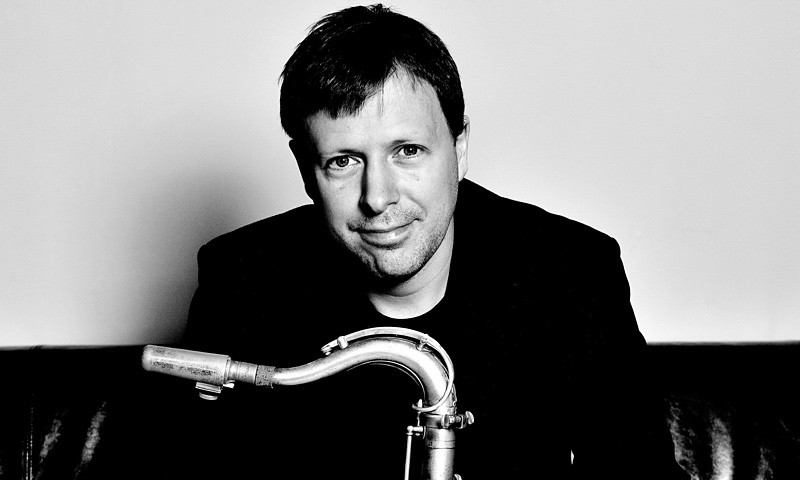
Clive: Charlie Haden seemed to possess a quality that allowed him to transcend genres and you can hear it in his music, it’s wonderful stuff.
Chris: Yeah. There’s a lot of amazing folks that I’ve met being involved in this music. Ornette (Coleman) and Wayne Shorter, I mean, these are special people – besides being great musicians!
Clive: I know you’ve played a lot with Brad Mehldau, who is a much-admired contemporary of yours, yes?
Chris: I first met Brad Mehldau when I came to the New School and we were in an ensemble together, so we were both like 18 or 19. I feel like we’ve kind of grown up together in a certain way, even if we don’t see each other all the time or play together all the time. Just kind of watching the art of their music, and their life, and their career. People like Mark Turner and Kurt Rosenwinkel, you know. A lot of musicians that I’ve come up playing with, you know, like Adam Rogers and Craig Taborn…
Listen: Potter and Mehldau perform Book of Kells on the album “Moving In”
Clive: The Underground Orchestra guys. Is that who you’re touring with in Europe right now or is it The Dreamer is the Dream group?
Chris: No. It’s kind of a hybrid, it’s basically the Underground Band. It’s the same band that I’ll be with there (in Lexington): It’s Adam Rogers on guitar and Fima Ephron on bass and then Dan Weiss who will be playing drums. So, it’s gonna be primarily music that’s already been recorded with Underground, but also some other music. We were just on the road for a few weeks and it was really taking off in a nice way, so we will be happy to present it there.
Treat yourself:
[aesop_video width=”content” align=”center” src=”youtube” id=”si-7m7u84Do” disable_for_mobile=”off” loop=”off” autoplay=”off” controls=”on” viewstart=”off” viewend=”on” revealfx=”off” overlay_revealfx=”off”]
Watch for part two of Clive’s conversation with Chris Potter on April 16.
To purchase tickets, please visit lexingtonlyric.tix.com

